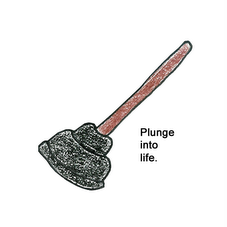Last week I had the priviledge to interview about a dozen young adults who were throwing their hat in the ring to try and earn a college scholarship from a Philadelphia-area non-profit of which I'm a member. It's always a highlight of my year to take a day off of work, meet with bright, young, interesting kids (mostly) and give out other people's money. By listening to and observing each applicant, it amazes me to realize just how different these students really are. Here are some things I noticed and tips that may help other students who interview for a scholarship or job in the near future:
1. Dress professionally. This is an old cliche, but the first impression you give really does make a difference. Some really amazing kids came in dressed in shorts or wearing sneakers. Doing this really doesn't get you off on the right foot and makes it seem like you don't care. Each interview is different in terms of formality, but at the very least, it's important to look sharp.
2. Drop the slang. I met a sweet young girl who talked about her time growing up in a not-so-great neighborhood. I was impressed with how she climbed out of a difficult lifestyle, but listening to her say "axe" instead of "ask" and "mines" instead of "mine" really got annoying. I realize that slang becomes part of a person's vernacular no matter where s/he is from, but it makes me cringe to hear somebody interview for a chunk of money and talking like they don't even care how they sound. That ain't cool.
3. College = Education. Perhaps it's just a fact of life now, but I get the feeling that college (or high school) kids are entitled to think that college is supposed to be fun first, educational second. Granted the college/high school years can and should be the most fun times of a person's life, but ultimately you go to school for an education. If I ask you in an interview-- "How did your year at college go?"-- the answer shouldn't be-- "Oh it was a blast." Tell me what you learned, interesting projects you worked on, or advances you made in your education. If I'm giving you moolah for a college education, prove to me that you're getting educated!
4. Ask questions. In a job interview, it is wise to ask questions at the end of the interview. It shows you were listening and thinking ahead about the job, plus it gives the interviewer a chance to talk more naturally about the company he represents. Same goes in a scholarship interview. Ask about the scholarship. How is money raised? What type of people do you look for? Anything! If I say-- "Do you have any questions?"-- don't say-- "Ummm, no, that's about it."
5. Come prepared. Sadly, quite a few kids had no idea about the organization giving away money. That should be the first order of business once you are called in for an interview, if not earlier. Learn what the organization's mission is, learn what the culture is like, etc. With the ease of searching online now, there's no excuse to not at least give an "elevator speech" about what the organization is all about.
6. Be ready to talk past, present, and FUTURE. I admit that I am often guilty of this one. I can always talk about what I did in the past and what I'm doing now, but I don't always think ahead about what what I plan to do in the future. But in an interview, you need to show some initiative and at the very least pretend like you have a plan. Otherwise, why should I give you money if you're just going to flounder around with it?
7. Send a thank you note. Just common courtesy.
Interviews are a challenging part of life, but it's important to know what works best. And knowing is half the battle. Good luck!
Wednesday, May 30, 2007
7 Interview Tips for College and High School Students
Labels:
college costs,
high school,
interviews,
jobs,
Philadelphia,
scholarship,
tips
Subscribe to:
Post Comments (Atom)


No comments:
Post a Comment